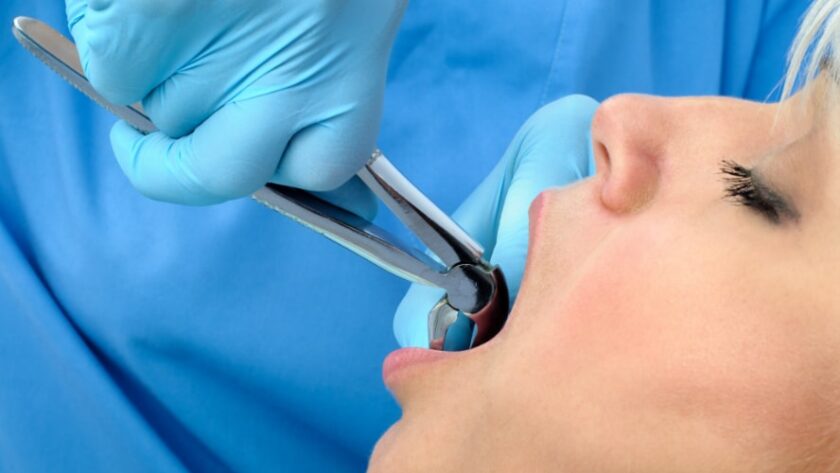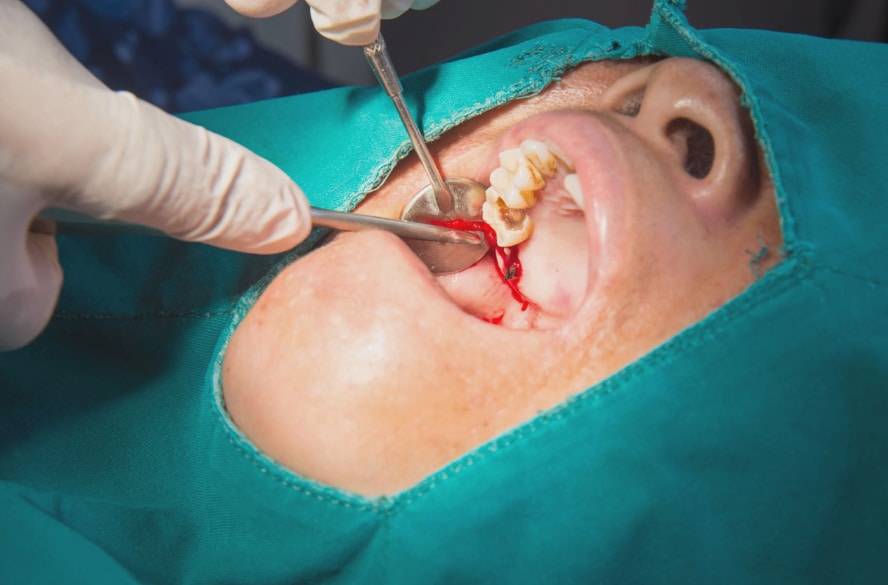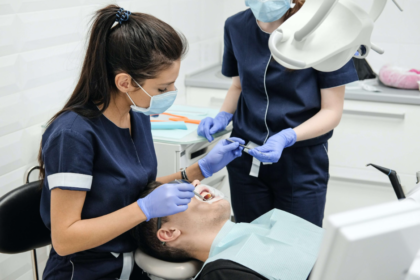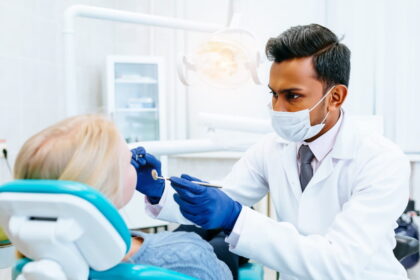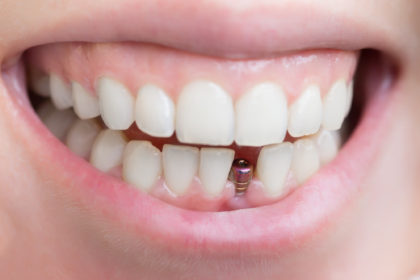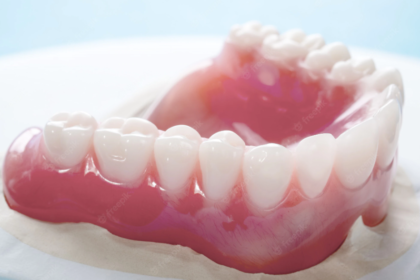Whether you’re in need of emergency tooth removal or have an oral emergency that needs to be addressed right away, there are some things you can do to make the process as painless as possible. If your dentist or dental hygienist is not available, there are some things you can do to ensure your comfort while you wait for treatment. While waiting for a dentist appointment, try these tips:
-
Use Home Remedies
If your tooth is simply knocked loose but hasn’t broken off completely yet — or if it’s been knocked out entirely — put it back in place as soon as possible using clean fingers or tweezers and hold it there with gauze or wax until it can be reinserted by a dentist or oral surgeon within 24 hours of the injury.
-
Use Over-the-Counter Medications
You can take ibuprofen or acetaminophen before your appointment to help ease any pain or discomfort. Be sure not to use aspirin for 48 hours before your appointment because it can interfere with blood clotting and increase your risk of bleeding.
-
Sip On Water Or Tea
Drinking water or tea will keep your mouth moist and help prevent dry mouth, which can make things worse when you’re already in pain. Try chewing sugarless gum if you’re having trouble keeping hydrated throughout the day.
-
Don’t Use Tobacco Products Or Alcohol Before Your Appointment
Both tobacco products and alcohol cause dry mouth and increase your risk of infection after having a tooth extracted. If you must use tobacco products, do so after your appointment has ended because they can impair healing and cause additional problems with bleeding during surgery if they’re used too close to the procedure date.
-
Use a Cold Compress
A cold compress helps reduce swelling and alleviate some of your pain. You can use one made from crushed ice or a bag of frozen peas wrapped in a towel.
-
Drink Plenty of Water
It may seem obvious, but drinking water before, during, and after a medical procedure like urgent tooth extraction is important for your health as well as your comfort level. When you’re dehydrated, your mouth becomes dry which makes it harder for doctors to do their jobs easily. Drinking plenty of water can also help reduce swelling after surgery which may lead to more pain than usual during recovery time.
-
Apply Clove Oil
Apply clove oil on the gums around your infected tooth if they’re swollen and tender; this should help with pain relief as well as disinfecting any bacteria that may be causing infection in your mouth. Clove oil also helps numb your gums (and other soft tissue), so they don’t hurt as much while the dentist works on removing your tooth.
-
Rinse Your Mouth With Warm Salt Water
You should rinse your mouth with warm salt water. This will help reduce the pain and kill any bacteria present in the infected area. You can also use antibacterial mouthwash if you have it handy; however, if not, then just use warm salt water alone.
-
Eat Cold Foods
If you have an active infection in your mouth and want to numb the pain from an upcoming procedure, try eating cold foods like ice cream or popsicles. The cold temperature will cause the blood vessels in your gums to constrict and limit circulation in the area. This means less bleeding during surgery and less pain afterwards.
-
Ask For Nitrous Oxide (Also Known As Laughing Gas)
Many dentists offer nitrous oxide to patients who need emergency tooth removal because it reduces anxiety while also relieving some of the pressure caused by drilling into bone or ligaments surrounding teeth during extraction procedures.
What to Avoid After an Urgent Tooth Extraction
If you’ve recently had an urgent teeth extraction, you may be wondering what you should avoid in the days following your procedure. While it’s normal to experience some swelling and discomfort after having a tooth extracted, there are certain things that can make a bad situation worse.
Here are some tips for what to avoid after urgent tooth extraction:
-
Don’t Eat Or Drink Anything Crunchy
It’s best to avoid eating or drinking anything hard, like popcorn or chips, until your mouth feels better. That way, you’ll avoid accidentally biting down on something hard and causing more damage to your mouth.
-
Don’t Smoke Or Chew Tobacco Products
Smoking can cause bleeding and swelling in the gums and cheek tissue around your tooth socket — not to mention give you bad breath! Chewing tobacco can also cause further injury to your mouth as well as increase your risk of oral cancer.
-
Avoid Smoking & Drinking Coffee/Alcohol
These activities can irritate your mouth and increase your risk of developing a dry socket, a painful condition that occurs when blood clotting doesn’t occur properly in the empty tooth socket.
-
Don’t Open Your Mouth Too Widely
Doing so can cause bleeding and make it more difficult for your doctor to remove all of the roots from the bone.
-
Avoid Chewing Hard Foods
Don’t eat hard foods or chew gum until your doctor gives you permission. Chewing hard food can make it difficult for you to swallow, which could lead to choking or aspiration pneumonia (where food enters the lungs). And chewing gum can increase swelling and bleeding in your mouth.
-
Avoid Sucking On Straws
Drinking through a straw puts pressure on your gums and may cause pain or bleeding due to the pressure and friction of sucking through the straw. It’s best to use sips of water instead of drinking through a straw until your healing is complete (about two weeks).
The post is quite tentative, but the emergency tooth removal tips given are highly useful and relevant. Hopefully, we’ve provided you with helpful tips on alleviating pain from a toothache. All you need is a little bit of knowledge and a little bit of courage. So go out there and do it!

